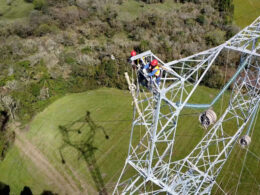WWF’s Greening Financial Regulation Initiative (GFRI) and CDP have issued a policy paper urging international regulatory bodies such as the Financial Stability Board (FSB) and the Basel Committee on Banking Supervision, along with national regulators, to integrate nature-related risks into the frameworks governing Global Systemically Important Banks (G-SIBs) and Domestic Systemically Important Banks (D-SIBs). The call comes as nature-related risks, such as environmental degradation and biodiversity loss, are increasingly recognized as significant threats to global financial stability.
A policy paper titled “Addressing the Giants: Integrating Nature in Regulations for Systemically Important Banks,” highlights that both national regulatory requirements and G-SIB action are lagging in addressing nature-related risks. The paper reveals that banks are failing to adequately manage risks in areas such as disclosure, risk management, capital and liquidity requirements, and long-term planning. This is particularly evident in the United States, Canada, and the UK, where despite hosting 13 of the world’s 29 G-SIBs, minimal action has been taken to address these risks.
The paper’s findings show that 50% of the assessed G-SIBs have strategies to engage clients on forest-related issues, yet only one has a strategy addressing water security, reflecting an imbalance in environmental focus. Furthermore, none of the G-SIBs currently use scenario-based risk management for water security or deforestation, pointing to a lack of comprehensive environmental risk planning.
Pietro Bertazzi, Global Director for Policy and External Affairs at CDP said, “CDP data shows that major banks are still flying blind to the swathe of risks posed by nature loss. We have heard before that big banks are ‘too big to fail’, but a failure to disclose and act on nature is likely to prove the opposite. Regulators must show they have learned the lessons of the financial crash and act swiftly to mandate comprehensive, holistic environmental disclosures and safeguard financial stability.”
The paper recommends that the FSB and Basel Committee on Banking Supervision integrate nature-related risks into global financial frameworks, adjusting capital buffers and incorporating environmental metrics into systemic risk assessments. It also calls on national regulators to require both G-SIBs and D-SIBs to enhance their risk management frameworks, develop specific nature-related risk scenarios, and implement systemic risk buffers to mitigate potential shocks.
Additionally, the paper recommends that G-SIBs elevate their nature-related actions by adopting frameworks like the Taskforce on Nature-related Financial Disclosures (TNFD) and aligning their business practices with broader climate and nature policies. The G20 is also urged to mandate enhanced transparency, nature-related risk assessments, and rigorous supervisory monitoring for systemically important banks.
Maud Abdelli, WWF Greening Financial Regulation Initiative Lead said, “International financial regulation needs to evolve to account for nature-related risks and impacts. G-SIBs play a crucial role in the stability of the financial system and their resilience is vital to preventing failures that could lead to widespread financial crises. At the same time, G-SIBs have a significant environmental footprint and consequently have a large opportunity to mitigate their negative impacts on nature. To that end, a coherent, coordinated approach among supervisors and the intervention of international standard setters is needed.”






















